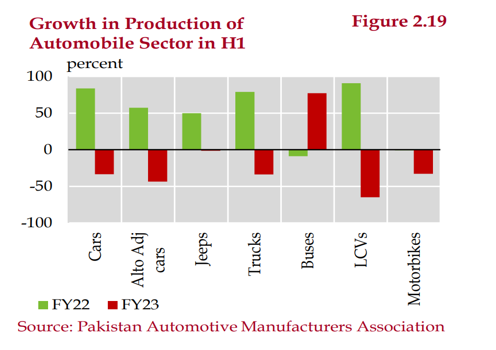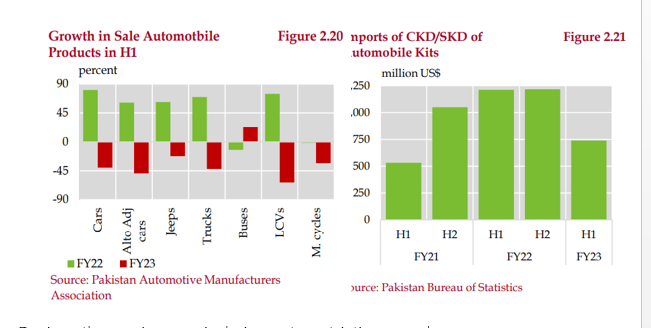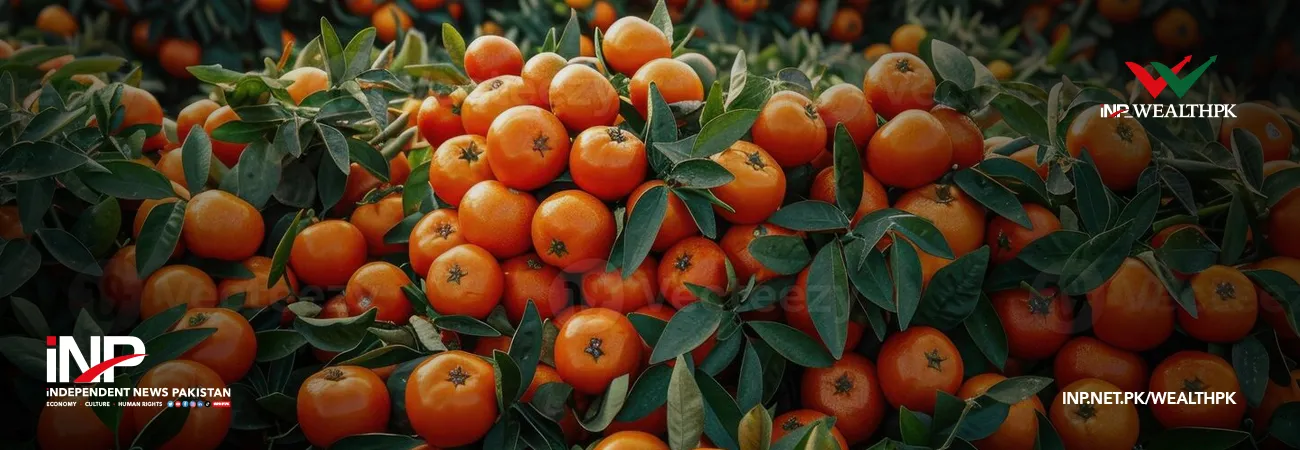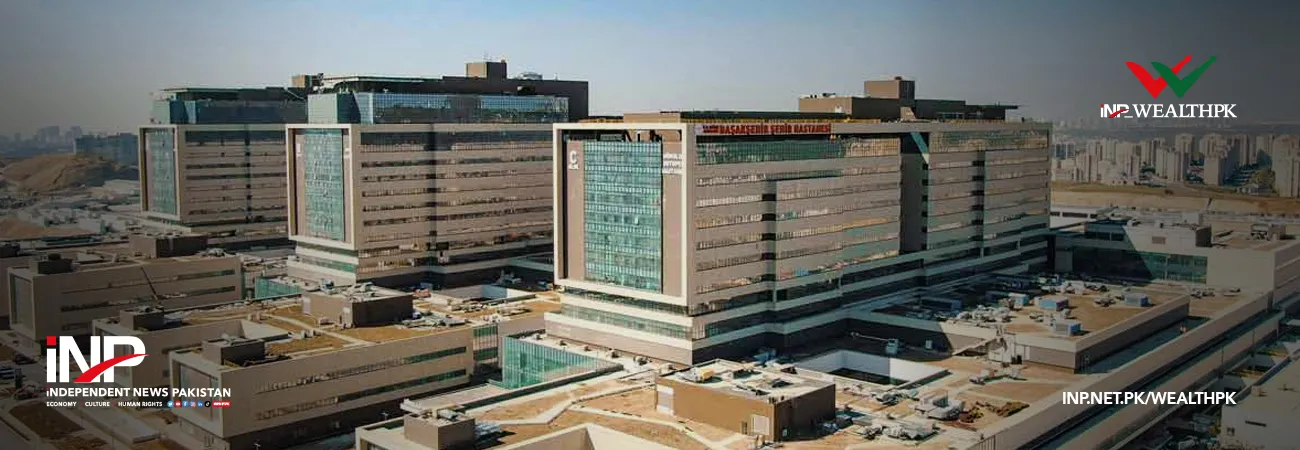آئی این پی ویلتھ پی کے
Arooj Zulfiqar
The automobile sector suffered a considerable fall in production in the first quarter of FY23 due to inflationary pressure and tight policy regulations, reports WealthPK. The sector posted a 30.2 percent contraction during H1-FY23, compared to 68.2 percent growth in the same period last year.

As the Pakistan Automotive Manufacturers Association (PAMA) reported, auto sales plummeted by 40.0 percent in the current review period. Another factor attributable to the demand side is the SBP tightening prudential requirements for auto loans.

During the review period, import restrictions and a significant depreciation of PKR led to a reduction in the import of completely knocked down (CKD) and semi-knocked down (SKD) automobile kits on the supply side. “The automobile sector is a significant contributor to Pakistan’s economy, providing employment opportunities and contributing to the country’s GDP. However, in recent years, the sector has faced considerable challenges due to inflationary pressure and tight policy regulations,” said Abdul Waheed Khan, a senior representative of PAMA. “Inflation has been a persistent concern on Pakistan’s economic landscape.
The rising prices have eroded the purchasing power of consumers, making big-ticket purchases such as automobiles less attractive. Owing to the inflationary pressure’s grip on the economy, individuals tend to postpone discretionary spending, including the purchase of new vehicles. This decline in the consumer demand has directly affected the automobile sector’s production levels, as the manufacturers reduce output to match the lower demand,” Waheed said. “The soaring fuel prices have a significant impact on the auto industry, causing a ripple effect that affects both the consumer behaviour and overall economy. As fuel prices surge, the demand for vehicles plummets, particularly for those with low fuel efficiency,” he said.
“This increase in fuel prices has decreased vehicle sales, which in turn affected the production levels of automobile manufacturers. Moreover, the rise in fuel prices adds to the overall inflationary pressure, making it harder for people to afford cars and other goods,” he added. Furthermore, inflation can exert upward pressure on the production costs. Raw materials, labour, and energy costs tend to rise during the periods of inflation, squeezing profit margins for automobile manufacturers. To maintain profitability, companies may cut back on production or pass the increased costs on to the consumers through higher prices, further dampening the demand.
Credit: INP-WealthPk












